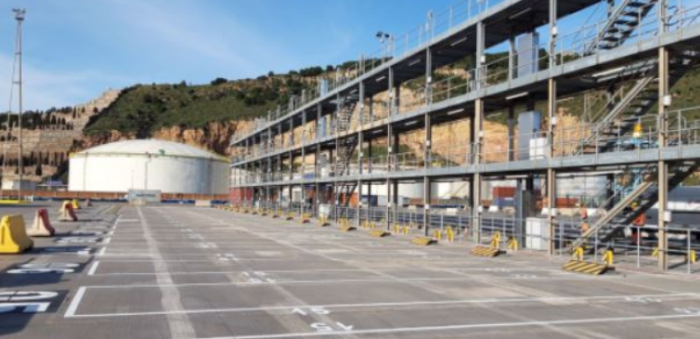APM Terminals Barcelona, Spain has increased reefer capacity by 31%. The electrical capacity of the terminal has also been enhanced, leading to a reduction in CO2 emissions of 600 tonnes per annum. In addition, 152 reefer plugs have been added at the terminal, increasing the total to 677.
New reefer racks facilitate reefers to be stacked up to 4 containers high, compared with 3 on current racks. The modern design also improves safety for employees carrying out repairs and maintenance.
[smlsubform prepend=”GET THE SAFETY4SEA IN YOUR INBOX!” showname=false emailtxt=”” emailholder=”Enter your email address” showsubmit=true submittxt=”Submit” jsthanks=false thankyou=”Thank you for subscribing to our mailing list”]
The new reefer racks are connected to the central power supply. This means that over-capacity reefers do not depend on diesel gensets, providing a reduction of around 600 tonnes of CO2 emissions per year. Connecting to the electricity supply network also limits localised pollution in the terminal environment.
Moreover, under a wide program for alternative fuel use in the Port of Barcelona, APM Terminals will collaborate with LNG services provider HAM, technology provider IDIADA and Naturgy Iberia, on a pilot to convert a current straddle carrier to natural gas. The straddle carrier’s two 150 kW diesel-based motor engines are now being converted to natural gas. The pilot is planned for October 2019.
APM Terminals Barcelona uses a wireless network to provide real-time data on all the details of a container’s itinerary, from the moment it is unloaded off a ship, until it is dispatched from the port, or vice versa. This makes sure that the procedure is fast and efficient.
Furthermore, the terminal also has its own on-dock rail connection, immediate access to the motorway network, as well as automated gate access for optimum intermodal efficiency. The Terminal provides direct access to a large hinterland.

































































